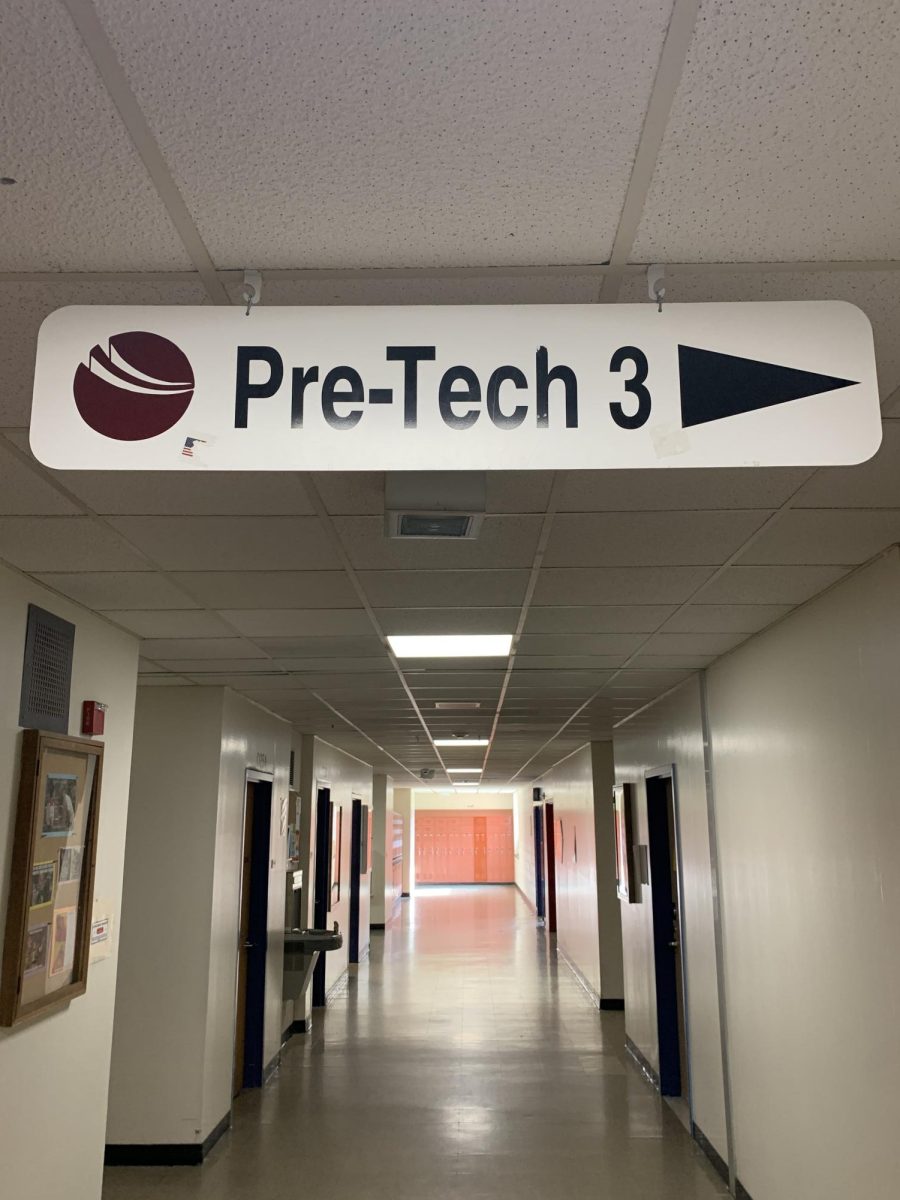A Deviation of Values by Oliver Hoppe
Essex is supposed to be built around cooperation and kindness. This can be reflected in our high school’s values of respect and integrity. But, I have been hard-pressed to see these values in the parking lot lately. The Essex Rescue team is a vital part of our community and is located right next to Essex High School. When I leave school each day, I see cars blocking the access to Essex Rescue, making it impossible for any emergency vehicle to leave. As everyone knows, traffic is a problem at dismissal, but that does not give you a reason to stop your vehicle in a no-stop space in an act of selfishness–and it’s not even saving you any time.
You may feel that blocking the driveway is an inconsequential action, but traffic jams contribute to 20% of patient deaths in an ambulance. By blocking the road, you are adding to the time it takes for rescue services to get to a person in need– in fact, the time it takes for you to move out of the way could be the difference between life and death. I understand the rush to get out of the parking lot. I bolt out the door, knowing that taking an extra 30 seconds to get out may mean I’m stuck for ten more minutes, but I also understand that by pulling up in front of the exit to Essex Rescue I am not gaining any time, as I still need to wait my turn to pull up to the four way stop. By only being able to go one by one through the intersection, pulling up in front of Essex Rescue will not end up saving you any time.
Essex Rescue provides a valuable service to our community, and that includes transporting residents from Maple Ridge, an assisted living facility where I work. Medical services are dispatched to Maple Ridge nearly every day, helping at-risk people so that they can receive care they need. Throughout my time at Maple Ridge, I have come to make great connections with each resident; they have become close friends of mine, and their safety is a constant concern of mine, whether I’m at work or school. Seeing people block off Essex Rescue, making them unable to care for those who matter to me, makes me very upset. We may be a community built on values of respect and integrity, but this is not reflected in prioritizing our own needs over others.
It is time for the administration to properly enforce this rule, not just because it’s the law, but because it is the right thing to do. It is also not solely on the administration; you must understand that you will not save any time and will only end up hurting people by blocking the access point. It is up to you to do what is right and reflect what it means to be a part of the Essex High School by respecting others in our larger community.
Work Cited: “Emergency Vehicles – Injury Facts.” Injury Facts, https://injuryfacts.nsc.org/motor-vehicle/road-users/emergency-vehicles/. Accessed 27 May 2025.
Our Endless Well is Drying Up by Sophia Lu
Scarcity, the fundamental economic problem, is an issue all societies face. Human wants are infinite, but our resources are finite. An effective solution to this conundrum that has stood for decades are household appliance efficiency standards, which set specific energy and water consumption requirements. These efficiency standards have reduced natural resource consumption, and encouraged manufacturers to innovate in designing more energy-efficient products. If our current administration’s move to repeal the longstanding limitations on household water and energy consumption succeeds, we will accelerate the rate at which we are exhausting our precious natural resources, and drastically raise prices for consumers: It is crucial that we lobby for efficiency limitations to remain in place.
As an American teenager living in suburban Vermont, I myself am a firsthand witness to the luxuries we are afforded. My home has many basic appliances like toilets, showers, and a dryer, and I am aware many of my peers share the same experience. I am sure many of you may also have access to basic appliances, and hopefully understand just how much they streamline living. Imagine subsisting without a shower or flushing toilet in your home. Do you think you could live a comfortable life without these luxuries?
These common appliances have become embroiled in the center of a growing culture war, led by the Trump administration. This May, the US Department of Energy declared an effort to de-regulate water and energy conservation standards for a variety of household appliances, targeting 47 regulations in a sweeping overhaul.
The removal of these regulations is a blatant attack on American consumers in favor of the advancement of manufacturing and commercial corporations. The Trump administration has peddled a message that “restrictive” efficiency standards make appliances more costly and less efficient, when in reality, the opposite is true. According to Teen vogue, “the pre-Trump Department of Energy estimated that these rules, taken together, saved the average U.S. household about $576 a year on their bills. They also cut national energy use by 6.5 percent and water consumption by 12 percent, making them a key tool for addressing climate change and drought.” These numbers illustrate just how effective efficiency standards have been in both reducing costs for consumers, and decreasing resource consumption. The typical U.S. household spends $4,560 per year on utilities, meaning current efficiency regulations help households save 13% on costs annually. Repealing these standards serves only to fulfill the larger corporate desires of companies that hold little regard for their environmental effects, or their impact on the common consumer’s livelihood. This would also allow manufacturers to permeate the market with inefficient products that would only serve to harm consumers.
In an official statement, the US Department of Energy proclaimed, “Thanks to President Trump’s leadership, we are bringing back common sense — slashing regulations meant to appease Green New Deal fantasies, restrict consumer choice and increase costs for the American people.” And yet, included within this plan is a move to end Energy Star, a popular energy-efficiency certification for various home appliances, including dishwashers, dryers, and refrigerators. This company saves Americans $40 Billion on energy annually. Just how will destroying such a company reduce costs for consumers? Instead, American consumers as a whole would feel an incredibly increased burden, during a time when the cost of living has already skyrocketed, with 57% – 78% of Americans estimated to be living paycheck to paycheck.
Moreover, the statement mentions “Restricted consumer choice.” What appliances are best for American consumers? Ones that achieve maximum efficiency. What is the Department of Energy trying to loosen? Regulations on household appliances that require a certain standard of efficiency. Just how is any of this common sense?
Furthermore, the mocking address of “Green New Deal Fantasies” seems to flippantly disregard the very real issue of climate change. “Green New Deal Fantasies” aren’t fantasies, they are an effective measure to address the stark reality of the human impact on our planet. Our consumption of fossil fuel energy and water has contributed to air and water pollution, habitat destruction, and resource depletion; we have exacerbated water scarcity, leading to changing climate patterns and more extreme weather conditions; we have released pollutants and fossil fuels to heat up the atmosphere through our combustion of fossil fuels for energy; and the infrastructure we have built to support our lifestyles has disrupted natural habitats and displaced native species.
Ultimately, we must lobby to maintain efficiency standards on household appliances to conserve energy and money, whilst also reducing our environmental impact. As our government seeks to deregulate consumer and climate protections in favor of drastic advancement, it is imperative that we advocate for these protections to remain in place. We must fight back against this governmental overreach, to ensure we can continue to protect American citizens and the world we live in.















